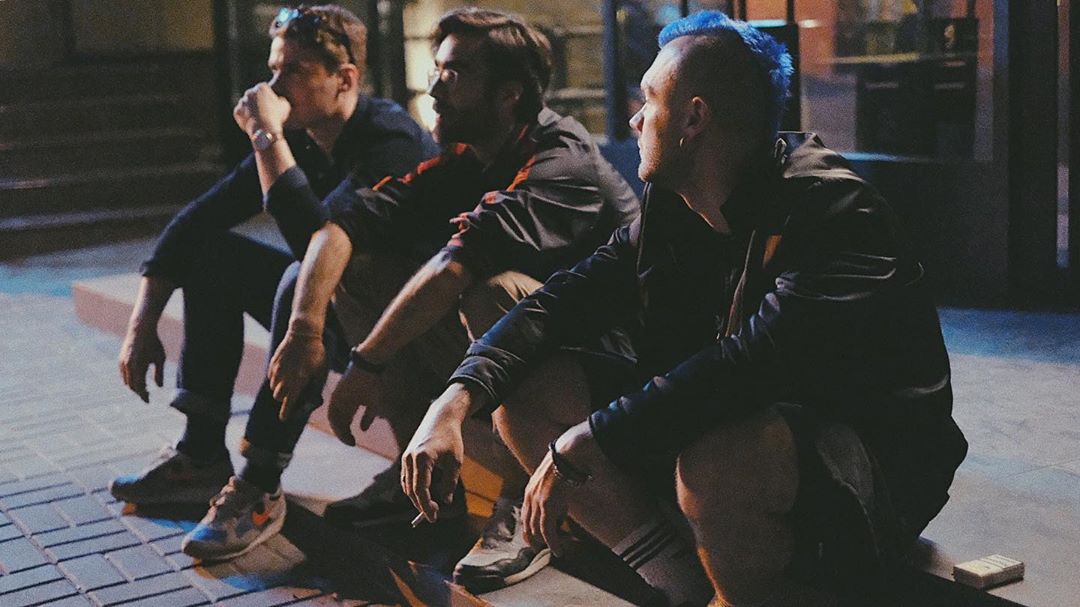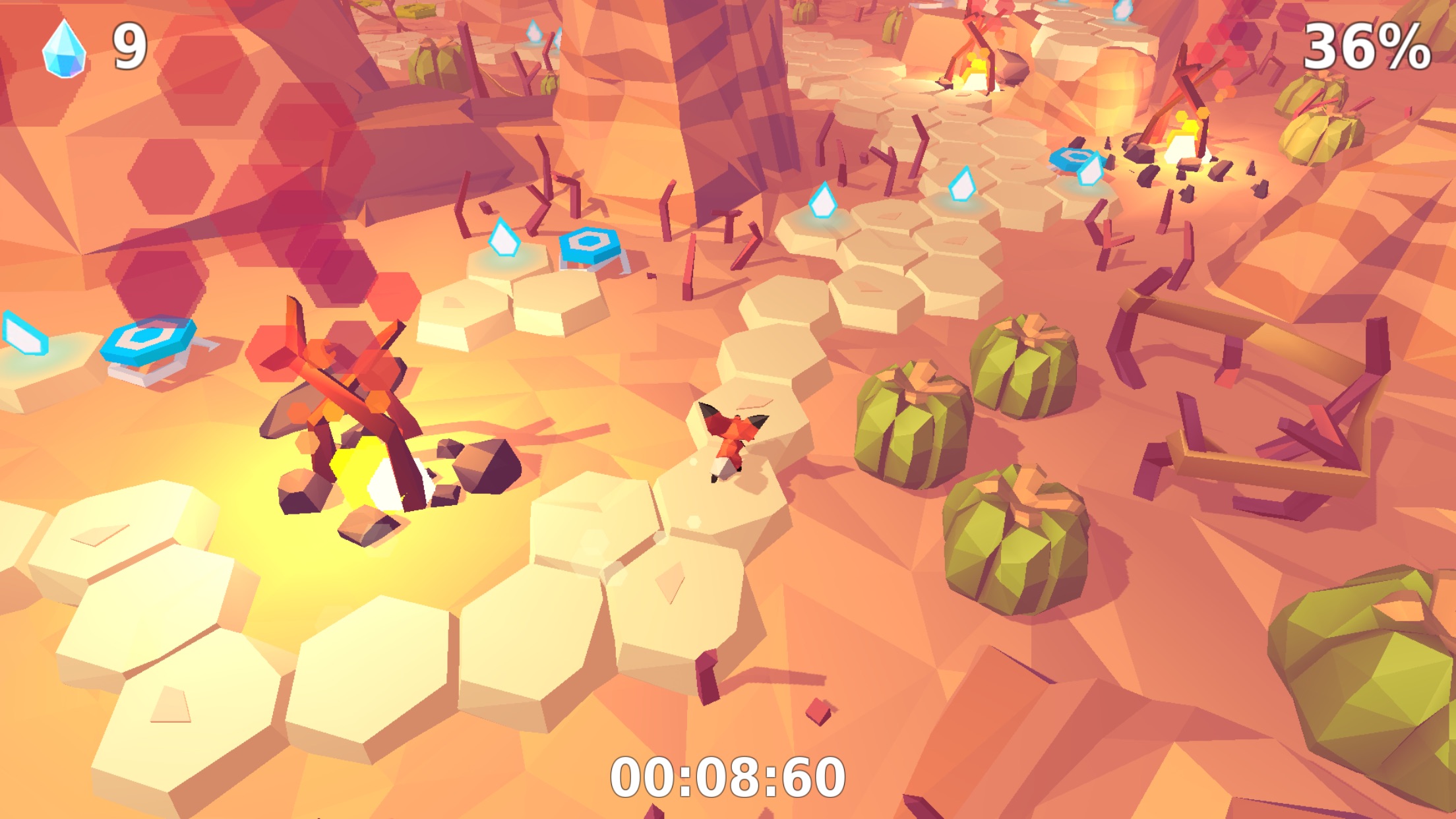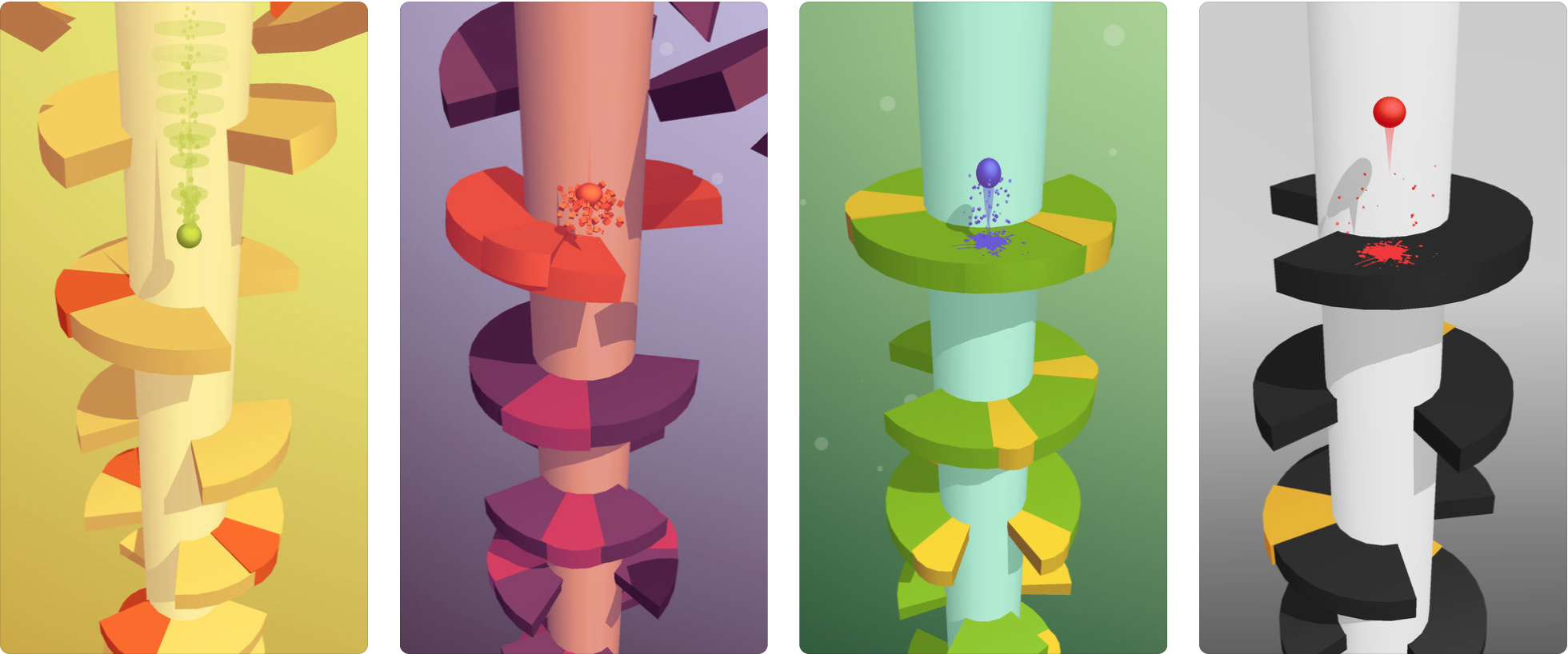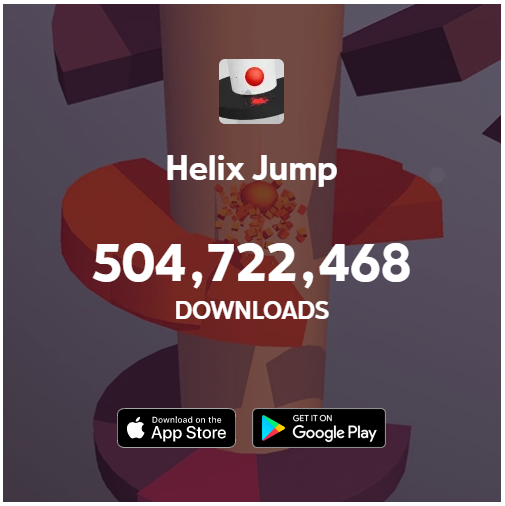Last week, Voodoo announced the takeover of the Ukrainian studio h8games, the authors of Helix Jump. We talked about the history of the Kharkiv team and working with Voodoo with Oleg Khromov, CEO and co-founder of h8games.

The French office of Voodoo is resting together with the Ukrainian one
Alexander Semenov, Senior Editor App2Top.ru: H8games studio, which today is officially called Voodoo Ukraine, is three years old. How did her story begin?
Oleg Khromov, CEO of Voodoo Ukraine: There were 8 of us in January of the 16th year. The previous company we all worked for collapsed*. We decided to move on by ourselves. Tarantino’s The H8ful Eight came out on the big screens then. So they called themselves h8games.
* In 2014, with the participation of the guys, the Ukrainian division of the Japanese company gumi was founded, which became famous for the game Brave Frontier. For almost two years, the AAA project was being developed, but when about six months remained before the release, gumi began to have financial problems. Many of its western offices, including Kharkiv, were closed (Editor’s note).
Your debut project was The Little Fox, a very beautiful and original** premium runner. Why did they start with him?
Khromov: There has always been a desire to bring something new to the market. Then all sorts of match-3, role-playing games were in fashion. For this reason, we decided to move in the opposite direction. We wanted to invent mechanics, treat art and music as art. So we ended up in the premium segment.
** The project was really original. Formally, he belonged to the genre of runners, but he was completely unlike them. The game was played in an isometric projection. According to the game level, made up of hexes, a fox cub ran (Ed.).

The Little Fox
This is far from hyper-casual. How did you come to them in the end?
Khromov: After The Little Fox, there was another paid project — the game Pengy Has a Dream. With even more original mechanics ***, even more complex art.
*** The player drew ice pads in the air, jumping on which the main character got to the end of the level (Editor’s note).
Both projects turned out to be a complete failure in commercial terms. Not only did not many people download both games, but also the descendants of Saint-Exupery sued us for using fragments of the “Little Prince” in The Little Fox.
We thought within the framework of the rule known to us: 60 years after the death of the author, the work becomes public domain. But we didn’t take into account one small detail. It turns out that the rule has an exception. If the author died in the war, the life of his copyright is extended. I had to urgently remove the game from stores.
If you’ve been knocking on one door for more than a year and they don’t open it for you, then maybe you chose the wrong door? So after the failure of Pengy Has a Dream, we reconsidered our attitude to premium games and decided to focus on what we like most in development – the invention of mechanics. They began to make a lot of simple little games with original gameplay.

Pengy Has a Dream
Have they also abandoned independent publishing?
Khromov: I would like to emphasize once again: we decided to focus on what we like and do best — mechanics. We left marketing and monetization to those who are good at doing just that.
Why Voodoo?
Khromov: Then (it’s around September 17th) there were two games released by Voodoo at the top of the American chart – Snake vs. Blocks and Dunk Hit. We just turned to the best in the business.
Can you tell us how the interaction with the publisher was built?
Khromov: Voodoo shared the principle of development, which then seemed to us ingenious. However, today it is already obvious to everyone who is engaged in game development, especially hyper-casual games.
The company showed us that mechanics can be tested!
You upload a prototype of the game to any account. Then you make a penny advertisement on Facebook. After spending very little time and money, you will learn the CPI and retention of the game.
Roughly speaking, you will find out how much it costs to bring one user into the game and, of course, how much it will bring you ****. And if the second digit is larger than the first one, you have a future hit in your hands!
**** The higher the retention, the more ads users will see. Scrolling the latter directly affects the revenue of the game (Ed.).
In two years of cooperation with Voodoo, we have tested about 50 prototypes. Of these, only four have made it to release: Fire Rides, Helix Jump, Traffic Dash and most recently BlocksBuster.
Helix Jump with its 500 million downloads became the most downloaded game in the past 2018.

Helix Jump
When Voodoo came with an offer to purchase, did they decide for a long time whether to agree or not? Why did you decide to agree?
Khromov: “Purchase” is not quite the correct wording. The guys from Voodoo and I are “on the same wavelength”, we look at business in a very similar way.
Despite the super-successful experience as an “indie studio”, we do not believe that every developer should start his own company. On the contrary, people with similar views should unite. And we join a larger company for free, whose views are close to us.
What changes for the studio as a result of changing the signboard?
Khromov: One of the things in which our views converge is that intelligent people should not be hindered, but given freedom and conditions for creativity.
Voodoo is a publisher. We are a developer. That’s why they don’t tell us how to make games. Nothing will change in the approach to work, just slightly increase the staff.
How is the production of projects usually arranged for you?
Khromov: We are always for a minimum of people and maximum simplicity of the process.
Now a whole new profession has crystallized — Hyper Casual Developer. Such a person can draw simple art himself, make simple 3D models himself, and download the missing ones online on free resources.
Thus, one developer can make the whole game himself. That’s exactly the kind of people we work with. The profession is new, so it’s easier for us to teach a person without work experience than to retrain an experienced one. It so happened that now for all employees of h8games, working with us is the first job in life.

Among the open vacancies today there is a manager for the publication. Do I understand correctly that now the studio will be engaged in far more than just development?
Khromov: The publishing manager is not really part of our development studio. It is rather a piece of the Paris office inside ours. It just so happens that there are a huge number of talented developers in Russian-speaking countries. The logical step is to hire a Russian-speaking Publishing Manager.
This person will not touch our internal processes, but will be engaged in monitoring teams in the former CIS countries and working with their products.
Who else are you actively looking for?
Khromov: As I said, we used to attract promising young developers with no work experience.
Now, in connection with the expansion, we want to simultaneously look for experienced people who are smarter than us in some ways, who will be able to bring their product expertise and ideas into our process.
For example, we have opened a Creative Director vacancy. That’s what we call a person who will help us come up with games, give them high-quality feedback. Who this person is — a cool game designer or a former producer, or maybe something third – we don’t know yet. We just communicate with all the cool experts from the industry in search of a person who will complement us.

From a personnel point of view, how interesting is Kharkiv? Who is missing the most?
Khromov: Kharkiv is a very talented city, sometimes you wonder how many smart extraordinary people live here. But this city has a not very simple situation in terms of personnel today.
In the noughties, many Western companies opened their branches here. As a rule, we are talking about “secondary” offices of companies. If we are talking about games, then updates are more often made here than full-fledged games. If we are talking about software, then more often they do not make an authentic product, but rather outsourcing.
On the one hand, it has created a good market for IT specialists. On the other hand, many people “with experience” have completely lost the ability to invent, create new things, think in terms of product categories, and not the wishes of the customer.
That is why for us a promising student is often more valuable than a Senior with 10 years of experience.
What problem would you note in most modern hyper-casual projects?
Khromov: Over the past couple of years, the hyper-casual market has become mainstream. Negative “market” practices have reached here: copying copies, cloning clones.
A large number of young minds succumb to the temptation of the “gold rush” and run to repeat the success of their predecessors.
But for success, you don’t need to look for what to copy, you need to look for what to bring.
Also on the topic:
